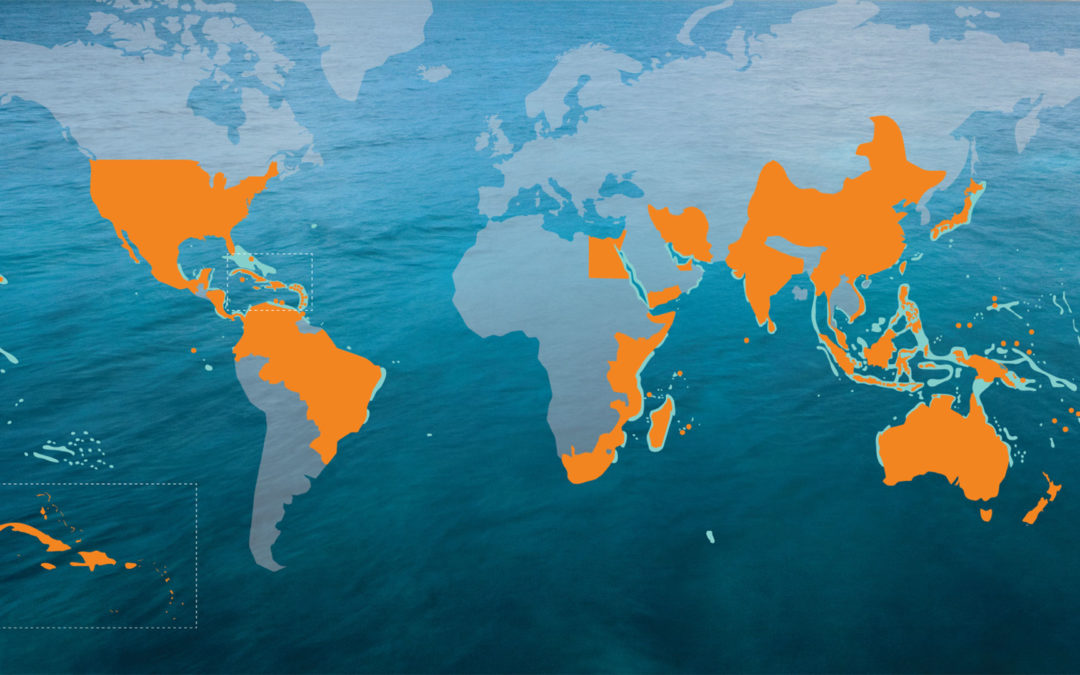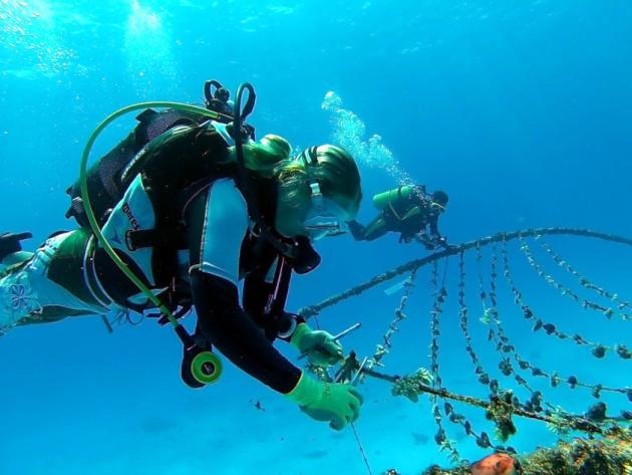
Climate Change Tools – Seychelles, 2015
In cooperation with NOAA’s International MPA Capacity Building Program and the Western Indian Ocean Marine Science Association, we hosted a hands-on training for MPA managers and practitioners.

In cooperation with NOAA’s International MPA Capacity Building Program and the Western Indian Ocean Marine Science Association, we hosted a hands-on training for MPA managers and practitioners.

A four-day learning exchange was held in partnership with the Gulf and Caribbean Fisheries Institute and NOAA’s Coral Reef Conservation Program to help marine conservation professionals approach their outreach and communications work strategically.

Four participants from The Bahamas National Trust and the Abaco Fly Fishing Guides Association visited Hawai‘i to learn about community-based management initiatives across the state, with emphasis on the State of Hawai‘i’s Makai Watch Program.

A four-day writing workshop was held for Pacific Island coral reef managers from Hawaiʻi, who received mentorship to improve writing skills and finalize a journal publication for submission.

Fourteen practitioners from Hawaii, American Samoa, Guam, the Commonwealth of the Northern Mariana Islands, and Yap participated in a training on communications, working with the media, and facilitation, focusing on the application to a current project.

Thirty managers participated in a workshop on the use of new tools that provide community members and stakeholders with an understanding of climate change and adaptation strategies.

The fourth in a series of four Training of Trainers (TOT) workshops included 25 managers from 10 countries throughout the Western Indian Ocean.

This learning exchange took place at the American Natural History Museum Island Resilience Symposium. The Reef Resilience Program sponsored and supported six presenters at the symposium.

The third in a series of Training of Trainers (TOT) workshops included 26 managers from 16 countries and territories.

During this workshop for Caribbean coral reef managers, 14 managers and practitioners from around the region worked with writing experts to write and edit publishable journal and media articles.

During the two trips between the islands, 62 managers, practitioners, and community members learned about successful management practices in each location.

Part of the 4th International Tropical Marine Ecosystems Management Symposium (ITMEMS), this learning exchange included 58 individuals.

This was the 2nd Reef Resilience Conference: Planning for Resilience, with 242 participants.

This learning exchange consisted of two parts: A pre-International Marine Conservation Congress (IMCC) workshop with 24 participants that focused on solving problems around MPA network design and implementation and a half-day symposium with 120 attendees.

The second in a series of Training of Trainers (TOT) workshops included 17 managers from 12 countries and territories in the Western Pacific islands.

This learning exchange focused on developing bleaching response plans and included 14 coral reef managers from Florida, the Caribbean, and Australia.

The first in a series of Training of Trainers (TOT) workshops included 26 managers from 19 Caribbean countries and territories.

This month we’re highlighting recently developed case studies and webinars about coral reef and fisheries research and management strategies from the Western Indian Ocean (WIO). In showcasing management actions undertaken in the region, we hope to prompt ideas and inspire WIO managers and practitioners, as well as managers around the world. Happy reading and watching!